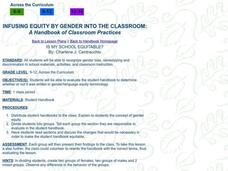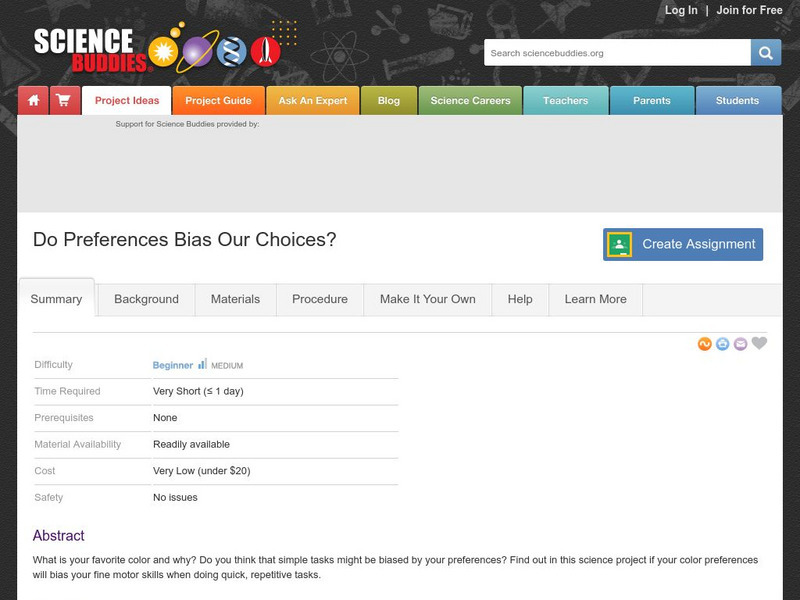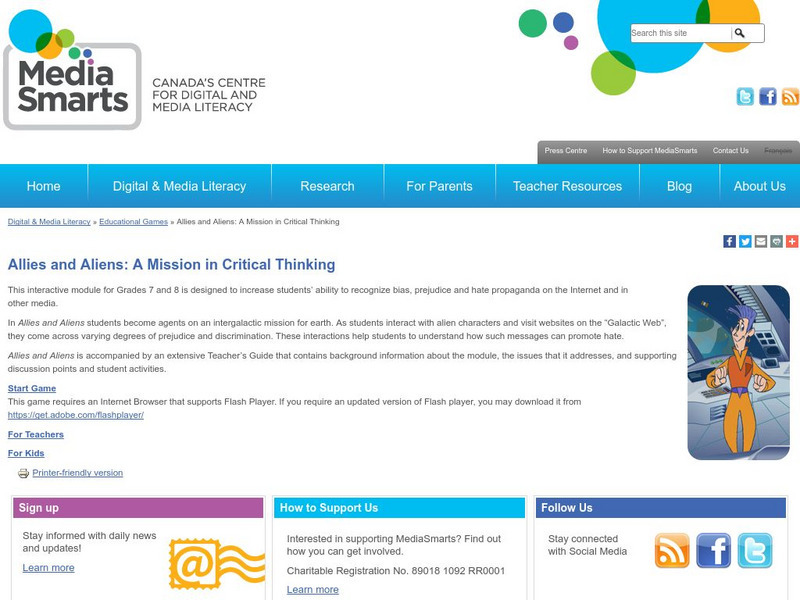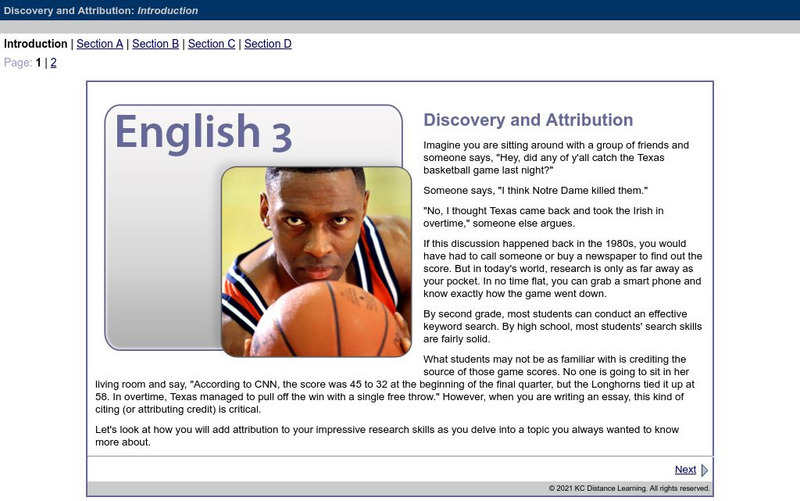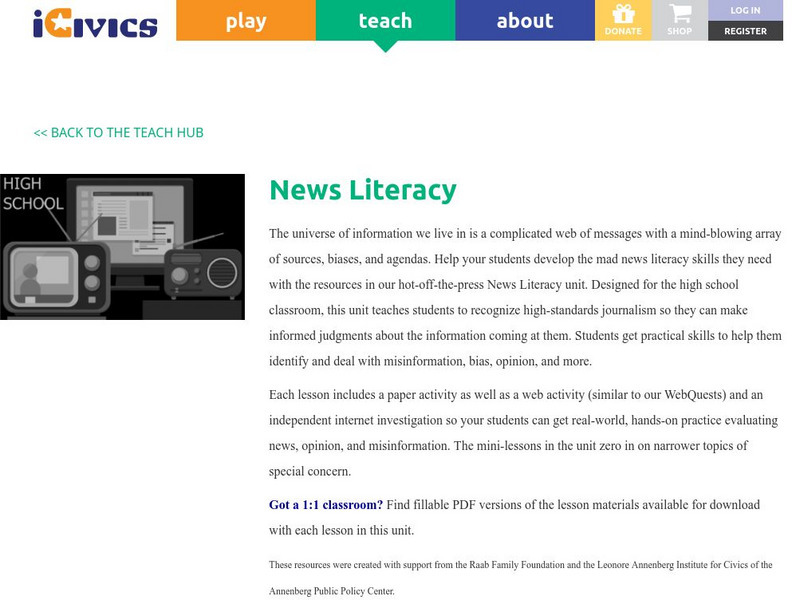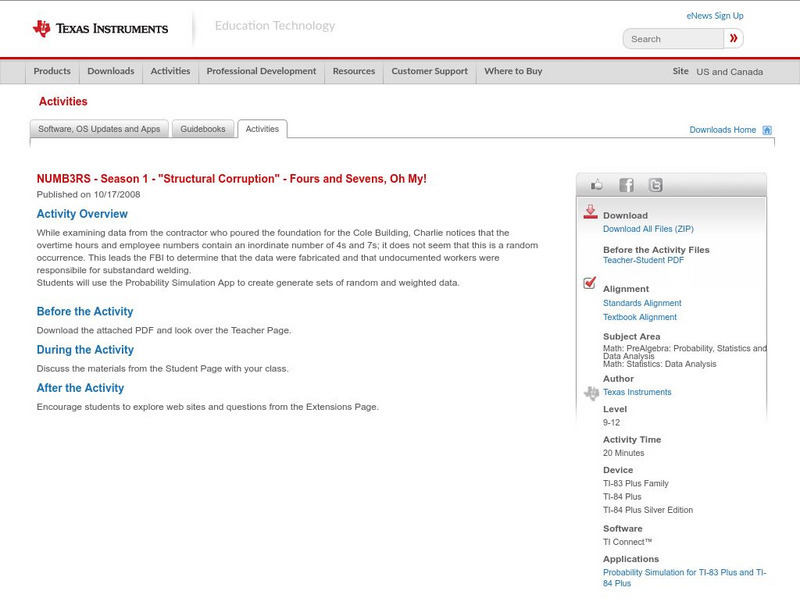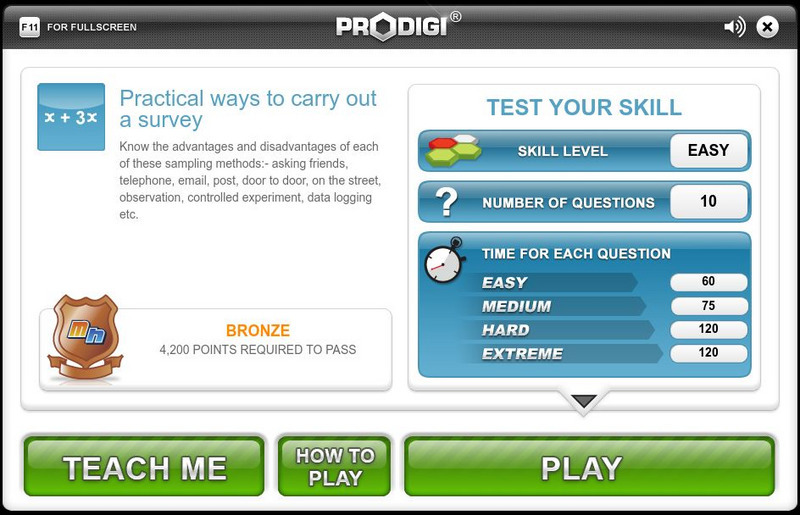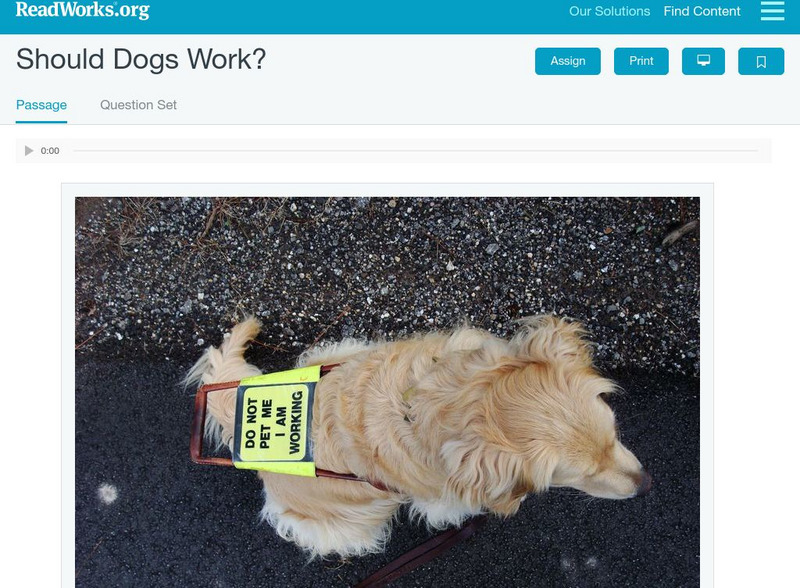Curated OER
Determining Point of View
Students examine web sites to determine point of view and bias in information sources. They determine the usefulness of information based on these biases or limitations.
Curated OER
IS MY SCHOOL EQUITABLE?
Students evaluate student handbooks and determine if it is gender bias.
Curated OER
Ports in the Storm
Students explore national security issues related to the possibility of a Dubai-owned company operating an American port. Opinions are solicited and debated.
Georgia Department of Education
Ga Virtual Learning: Epidemiology Study Designs
In this comprehensive interactive tutorial you will learn about clinical trials and how they are an example of epidemiological study designs. You will also be introduced to case control, ecological, cohort, and cross-sectional studies.
Science Buddies
Science Buddies: Do Preferences Bias Our Choices?
In this science project you will test whether color preference will affect repetitive tasks that require fine motor coordination, like picking up small objects very quickly. Find out if your color preferences will bias these repetitive...
PBS
Pbs: Tolerance in Times of Trial
This lesson compares the treatment of Japanese-Americans and German-Americans during World War II and the treatment of Arab-Americans after September 11th.
Media Smarts
Media Awareness Network: Allies and Aliens: A Mission in Critical Thinking
This interactive module for Grades 7 and 8 is designed to increase students' ability to recognize bias, prejudice, and hate propaganda on the Internet and in other media. Includes an extensive teacher's guide.
Other
Anti Discrimination Committee: Bibliography of Media Bias
This is an online bibliography of works dealing with Anti-Arab discrimination, stereotyping, and media bias. It includes government reports and ADC reports as well as scholarly works.
Department of Defense
Do Dea: Discovery and Attribution
The research process can be daunting, but it doesn't have to be overwhelming! After you complete this self-guided unit, you will be well prepared to write a research paper. You will learn how to choose a topic, evaluate the reliability...
iCivics
I Civics: News Literacy
Use this library of mini-lessons to teach students to recognize high-standards journalism so they can make informed judgments about the information coming at them and to help them identify and deal with misinformation, bias, opinion, and...
Library of Congress
Loc: The Titanic: Shifting Responses to Its Sinking
In 1912, popular media headlined the sinking of the world's largest luxury passenger ocean liner while on its maiden voyage. Newspapers captivated the world's attention with stories from survivors and about victims who did not survive....
Texas Instruments
Texas Instruments: Numb3 Rs: Fours and Sevens, Oh My!
Based off the hit television show NUMB3RS, this lesson introduces students to the concept of random numbers and shows how human-generated random numbers are not always "really" random. This is done by framing the lesson in terms of...
Space Telescope Science Institute
Amazing Space: Galaxy Hunter
Journey to the wildest regions of space, and wrestle with cosmic giants, galaxies. Explore the Hubble Deep Fields from a statistical point of view.
The Write Place
Literacy Education Online: Avoiding Gender Bias in Pronouns
Essay that focuses on how to shift writing from biased language to non-gender specific writing. Five examples are given from various publications to show how to become unbiased in writing.
TED Talks
Ted: Ted Ed: Pros and Cons of Public Opinion Polls
How do public opinion polls work? And, more importantly, are they accurate? Jason Robert Jaffe reveals the complexities and biases of polls and provides tips on how to think about polls as we make everyday decisions. [4:25]
Other
Miami University: Intergroup Bias in American Culture
This article examines intergroup bias in American culture. They discuss the levels of bias and try to explain why it happens. At the bottom of the page there are links to different places where bias takes place (political, academic, and...
Other
Optimistic Bias in Perceiving Physical and Mental Health
This article looks at the tendency to view oneself as invulnerable to experience negative life events. They suggest this goes hand in hand with the tendency to overestimate one's probability of experiencing postive life events. (Miami...
Annenberg Foundation
Annenberg Learner: Journey North: Reading Strategies: Identify Author's Viewpoint
This reading resource discusses the strategy of identifying an author's viewpoint. A list of guiding questions is provided to help students as they analyze the author's viewpoint.
Other
Family Law Center: Gender Bias in the Family Courts
This paper focuses on the subject of gender bias against men in reference to gaining custody of children in the Canadian Family Court system. The article does a good job at defining the bias and presenting examples of the myths and...
Mangahigh
Mangahigh: Data: Practical Ways to Carry Out a Survey
Students learn about the concept of taking a survey by exploring a tutorial. They can then test their knowledge by taking a ten question assessment that increases in difficulty as they correctly answer questions.
Read Works
Read Works: Should Dogs Work?
[Free Registration/Login Required] An informational text debating whether dogs should work or just be pets. A question sheet is available to help students build skills in reading comprehension.
Sophia Learning
Sophia: Fact vs. Opinion
Learn the difference between fact and opinion as it relates to scientific thinking.
Sophia Learning
Sophia: Politics and Media 3: Selling the Prez
Using electronic and print resources, this tutorial explores media bias and how political candidates are portrayed in the news. [2:42]



